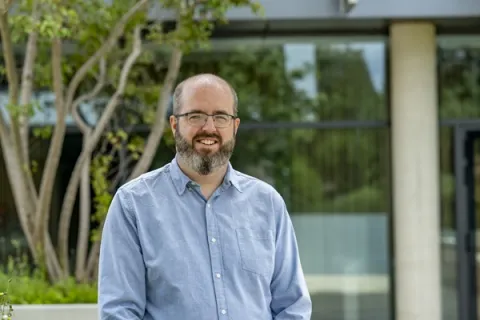About the project
This PhD project will aim to investigate the potential of using magnetic reconnection within a plasma propulsion thruster for spacecraft
Solar flares, coronal mass ejections and galactic jets all acquire their energy from magnetic reconnection. Magnetic reconnection is a mechanism by which opposing magnetic field lines break and reconnect converting their stored energy into acceleration of the plasma. The ejected plasma is expected to be travelling at huge speeds, an order of magnitude greater velocity than existing spacecraft ion thrusters. This leads to the ability to much more efficiently explore the Solar system, or move satellites in orbit much further than previously possible.
It is only very recently that magnetic reconnection’s potential for use in spacecraft propulsion has been identified, with approaches taking inspiration from either astrophysical sources or configurations associated with fusion research.
This project will investigate using magnetic reconnection as the acceleration mechanism for spacecraft ion thrusters. It will involve the simulation of magnetic reconnection using adapted codes available from astrophysics, the design of magnetic reconnection ion thrusters, and the testing of designed ion thrusters within the David Fearn Lab. The work will build upon initial work demonstrating the feasibility of the approach, presented at the AIAA Scitech conference 2023. It is an exciting opportunity to investigate a very novel propulsion system for spacecraft that could enable the next generation of satellite missions.
The Centre for Doctoral Training in Complex Integrated Systems for Defence & Security (CISDnS) is committed to promoting equality, diversity and inclusivity. We welcome all applicants regardless of their gender, ethnicity, disability, sexual orientation or age, and will give full consideration to applicants seeking flexible working patterns and those who have taken a career break or are transitioning into a new role. The University has a generous maternity policy, onsite childcare facilities, and offers a range of benefits to help ensure employees’ well-being and work-life balance.
